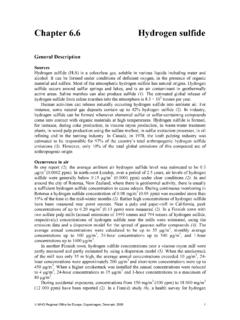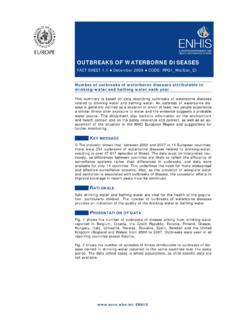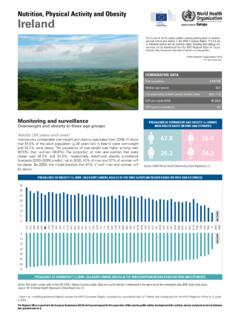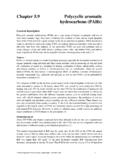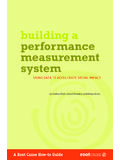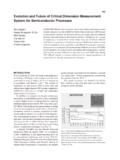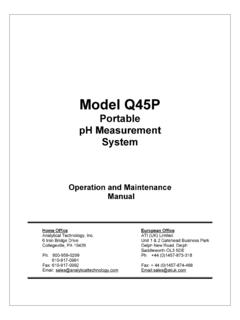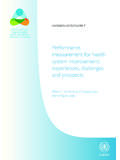Transcription of Performance Measurement for Health System Improvement
1 In a world where there is increasing demand for the Performance of Health providers to be measured, there is a need for a more Leatherman Papanicolas and Smith, Mossialos, strategic vision of the role that Performance Measurement can play in securing Health System Improvement . This volume meets this need by presenting the opportunities and challenges associated Performance Measurement for Health with Performance Measurement in a framework that is clear and easy to understand. It examines the various levels at which Health System Performance is undertaken, the technical instruments and System Improvement tools available, and the implications using these may have for those charged with the governance of the Health System .
2 Technical material is presented in an accessible way and is illustrated with examples from all over the world. Performance Measurement for Experiences, Challenges and Prospects Health System Improvement is an authoritative and practical guide for policy makers, regulators, patient groups and researchers. Peter C. Smith, Elias Mossialos, Irene Papanicolas Health System Improvement Performance Measurement for and Sheila Leatherman Peter C. Smith is Professor of Health Policy at the Imperial College Business School. Elias Mossialos is Professor of Health Policy at the London School of Economics and Political Science, Co-Director of the European Observatory on Health Systems and Policies and Director of LSE. Health .
3 Irene Papanicolas is Research Associate and Brian Abel Smith Scholar, LSE Health , London School of Economics and Political Science. Sheila Leatherman is Research Professor at the Gillings School of Health ECONOMICS, Global Public Health , University of North Carolina and Visiting Professor at the London School of Economics and Political Science. POLICY AND MANAGEMENT. PRAISE QUOTES TO FOLLOW. Designed by Zoe Naylor pa rt i Principles of Performance Measurement Introduction peter c. smith, elias mossialos, i r e n e p a p a n i c o l a s , s h e i l a l e at h e r m a n Introduction Information plays a central role in a Health System 's ability to secure improved Health for its population. Its many and diverse uses include tracking public Health ; determining and implementing appropriate treatment paths for patients; supporting clinical Improvement ; moni- toring the safety of the Health -care System ; assuring managerial con- trol; and promoting Health System accountability to citizens.
4 However, underlying all of these efforts is the role that information plays in enhancing decision-making by various stakeholders (patients, clini- cians, managers, governments, citizens) seeking to steer a Health sys- tem towards the achievement of better outcomes. Records of Performance Measurement efforts in Health systems can be traced back at least 250 years (Loeb 2004; McIntyre et al. 2001). More formal arguments for the collection and publication of perfor- mance information were developed over 100 years ago. Pioneers in the field campaigned for its widespread use in Health care but were impeded by professional, practical and political barriers (Spiegelhalter 1999). For example, Florence Nightingale and Ernest Codman's efforts were frustrated by professional resistance and until recently informa- tion systems have failed to deliver their promised benefits in the form of timely, accurate and useful information.
5 Nevertheless, over the past twenty-five years there has been a dra- matic growth in Health System Performance Measurement and report- ing. Many factors have contributed to this growth. On the demand side Health systems have come under intense cost-containment pres- sures; patients expect to make more informed decisions about their treatment choices; and there has been growing demand for increased oversight and accountability in Health professions and Health ser- vice institutions (Power 1999; Smith 2005). On the supply side great advances in information technology (IT) have made it much cheaper and easier to collect, process and disseminate data. 3. 4 Prinicples of Performance Measurement The IT revolution has transformed our ability to capture vast quan- tities of data on the inputs and activities of the Health System and (in principle) offers a major resource for Performance Measurement and Improvement .
6 Often, the immediate stimulus for providing infor- mation has been the desire to improve the delivery of Health care by securing appropriate treatment and good outcomes for patients. When a clinician lacks access to reliable and timely information on a patient's medical history, Health status and personal circumstances this may often lead to an inability to provide optimal care; wasteful duplication and delay; and problems in the continuity and coordination of Health care. Similarly, patients often lack useful information to make choices about treatment and provider in line with their individual preferences and values. Information is more generally a key resource for securing manage- rial, political and democratic control of the Health System , in short improving governance.
7 Over the last twenty-five years there have been astonishing developments in the scope, nature and timeliness of Performance data made publicly available in most developed Health systems. The publication of those data has had a number of objectives, some of which are poorly articulated. However, the overarching theme has been a desire to enhance the accountability of the Health System to patients, taxpayers and their representatives, thereby stimulating efforts to improve Performance . Notwithstanding the vastly increased potential for deploying per- formance Measurement tools in modern Health systems, and the large number of experiments under way, there remain many unresolved debates about how best to deploy Performance data.
8 Health systems are still in the early days of Performance Measurement and there remains an enormous agenda for improving its effectiveness. The policy ques- tions of whether, and what, to collect are rapidly being augmented by questions concerning how best to summarize and report such data and how to integrate them into an effective System of governance. This book summarizes some of the principal themes emerging in the Performance Measurement debate. The aim is to examine experience to date and to offer guidance on future policy priorities, with the fol- lowing main objectives: to present a coherent framework within which to discuss the oppor- tunities and challenges associated with Performance Measurement .
9 Introduction 5. to examine the various dimensions and levels of Health System Performance ;. to identify the Measurement instruments and analytical tools needed to implement successful Performance Measurement ;. to explore the implications for the design and implementation of Performance Measurement systems;. to examine the implications of Performance Measurement for poli- cy-makers, politicians, regulators and others charged with the gov- ernance of the Health System . In this first chapter we set the scene by offering a general discus- sion on what is meant by Health System Performance and why we should seek to measure it. We also discuss the various potential users of such information and how they might respond to its availability.
10 The remainder of the chapter summarizes the contents of the book that fall into four main sections: (i) Measurement of the various dimensions of Performance ; (ii) statistical tools for analysing and summarizing Performance measures; (iii) examples of Performance Measurement in some especially challenging domains; and (iv) how policy instruments can be attached to Performance Measurement . What is Performance Measurement for? Health systems are complex entities with many different stakehold- ers including patients, various types of Health -care providers, payers, purchaser organizations, regulators, government and the broader citi- zenry. These stakeholders are linked by a series of accountability rela- tionships.


